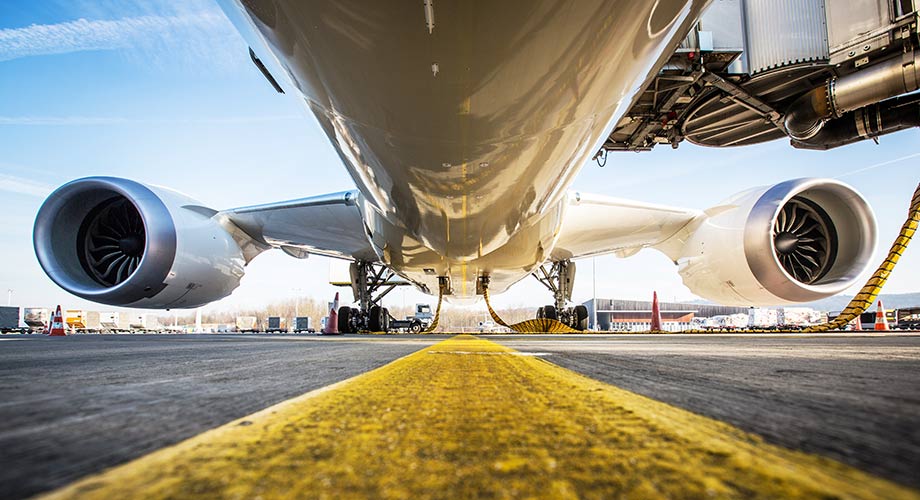By Chinelo Obogo
In April of this year, the chairman of Dangote Refinery, Aliko Dangote, pledged to work with Nigerian airlines to provide aviation fuel at a consistent price of N980 per litre at all airports nationwide. He made the commitment during a meeting with a delegation from the Airline Operators of Nigeria (AON) at the company’s headquarters in Lagos.
During the visit, the chairman of AON, Abdulmunaf Sarina, urged Dangote to facilitate direct access for domestic airlines to obtain aviation fuel from the refinery at a more affordable rate. Sarina said that Nigerian airlines are facing very serious challenges, which include forex scarcity and the increased cost of buying forex at over N1500/$, and that the skyrocketing cost of aviation fuel sold at N1700 per litre is threatening to cripple airline operations in the country.
Although Daily Sun has reliably learned that airlines have yet to begin purchasing aviation fuel directly from Dangote Refinery, Minister of Aviation Festus Keyamo recently stated that the Airline Operators of Nigeria (AON) convened and reached a definitive decision to cease buying imported aviation fuel, opting instead to source it from Dangote Refinery. “It is a decision by the airline operators of Nigeria, with my push and my blessing, that they should only buy from Dangote refinery,” he said.
The Nigerian National Petroleum Corporation (NNPC) had in the past said it would not fix the price of aviation fuel because it is a deregulated product. At the time (2022), the airlines were pushing to secure a license to import aviation fuel to address scarcity. However, the decision to now buy aviation fuel from Dangote at N980 per litre instead of the prevailing rate of N1,700 per litre would no doubt cut down on the cost of airlines’ operations, which takes over 60 percent of operating costs.
Though the Federal Government says this would not have been possible without local refining and the deregulation of the downstream sector, some still argue that the deregulation policy has caused severe inflation, high transportation costs, and skyrocketing prices of goods and services. But the Ministry of Information defended the policy on its official X handle this week, stating that fuel prices are still high despite local refining and production because they are determined by global market forces.
It said that despite local refining at Dangote and the soon-to-be-licensed NNPC Port Harcourt Phase I, the cost of crude oil and other production factors remain aligned with global benchmarks and that removing subsidies means that the prices Nigerians pay at the pump reflect the actual cost of refining, logistics, and distribution.
“Beyond these immediate benefits, the full deregulation and local refining open the door to increased investment in the downstream sector, which will create thousands of jobs in aviation and other sectors. No longer reliant on importing refined petroleum products, Nigeria will produce and refine locally, thereby keeping the jobs and economic benefits within the country.
“The removal of subsidies opens up opportunities for local refineries to thrive. As investments increase in the refining sector, the downstream market will become more competitive, attracting investors and creating jobs that Nigerians need. Under the deregulated system, independent marketers are free to purchase fuel directly from Dangote Refinery and other local or international refineries. This ensures a more competitive market and broader distribution, helping stabilize prices and improve access across the country.
“NNPCL no longer holds a monopoly over fuel procurement. NNPCL purchases fuel based on agreed commercial terms from local or international refiners or suppliers and distributes it like other marketers to their retail stations or others who want to buy from them. By boosting investment in the downstream sector, we have the opportunity to generate thousands of jobs, drive industrialization, and liberate Nigeria from its reliance on imported refined petroleum products. Through local refining, we can bring home jobs that were once sent abroad, empowering our economy and nurturing local talent.
“In 2023, the then administration removed subsidies for fuel and only budgeted for it till the end of May 2023. The National Assembly approved this plan for the 2023 budget, which the current administration met. There are currently no plans to extend these subsidies. It is important for the government to continue this trend by fully deregulating the market and removing fuel subsidies to stabilize the economy and ensure long-term energy security.
“The access to fuel from Dangote Refinery for independent marketers will promote fair pricing and healthy competition. “Citizens are encouraged to support these reforms by being patient and understanding the broader benefits of a fully deregulated market. While there may be temporary pain, the long-term gains—such as more jobs, improved infrastructure, and reduced smuggling—will benefit the entire economy. Additionally, citizens are urged to hold the government accountable for how the savings from subsidy removal are spent, ensuring they are invested in key sectors that directly improve their quality of life,” the ministry stated.

